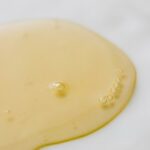Alarming Discovery: Paul Mitchell Tea Tree Moisturizer Linked to Hair Loss
Recent findings have linked Paul Mitchell's Tea Tree Moisturizer to hair loss, sparking consumer alarm. The product, under investigation due to its inclusion of the formaldehyde-releasing preservative DMDM hydantoin, has been associated with scalp irritation and hair loss. Amidst an ongoing lawsuit and numerous customer complaints, this issue illustrates the critical need for ingredient transparency in beauty products and could potentially instigate significant changes in the industry.

Investigation Status and Lawsuit Updates
Upon the conclusion of their investigation into the alleged link between Paul Mitchell Tea Tree Moisturizer and hair loss, attorneys have voluntarily dismissed the associated lawsuit, leaving no further updates or continuations in sight. This conclusion may influence potential legal actions against other products within the Paul Mitchell range, should they contain same or similar ingredients. The implications for other Paul Mitchell products are uncertain at this time, but it is conceivable that they may come under scrutiny if consumer reports of adverse effects persist. The dismissal of this lawsuit does not preclude future claims, and consumers are advised to consult with an attorney should they believe they have experienced hair loss as a result of using this or any other hair care product.
Understanding Paul Mitchell Tea Tree Moisturizer
In light of the recent lawsuit and subsequent investigation, a closer look at the composition of Paul Mitchell Tea Tree Moisturizer is essential, particularly focusing on its potentially harmful ingredients and their effects on consumers' hair and scalp health. The product contains ingredients such as DMDM hydantoin, a preservative that can release formaldehyde when in contact with water.
| Ingredients | Potential Effects |
|---|---|
| DMDM Hydantoin | Can cause scalp irritation and hair loss |
| Formaldehyde | Known human carcinogen |
| Tea Tree Oil | Potential allergen |
| Sodium Laureth Sulfate | Can cause dryness and hair damage |
Given these concerns, consumers are now seeking Paul Mitchell Tea Tree Moisturizer alternatives. It's advisable to opt for products with natural ingredients, which are less likely to cause adverse reactions.
Reasons for Investigation Initiation
The initiation of the investigation into Paul Mitchell Tea Tree Moisturizer stemmed from the numerous consumer complaints about hair loss and scalp irritation linked to its use. The investigation initiation impact was profound, leading to a thorough product ingredients analysis.
- The primary concern was the presence of DMDM hydantoin, a preservative known to release formaldehyde, a known carcinogen.
- Numerous users reported significant hair loss after using the moisturizer.
- Scalp irritation, including itching and dryness, were frequently cited issues.
- The high cost of the product added to consumer frustration over the perceived negative effects.
- The investigation also considered the lack of clear warning about potential risks associated with DMDM hydantoin on the product packaging.
This led to broader discussions about the regulation and disclosure of ingredients in beauty products.
DMDM Hydantoin: A Known Carcinogen
Continuing from the issues associated with the Paul Mitchell Tea Tree Moisturizer, our focus turns to the role of DMDM Hydantoin, a preservative acknowledged as a known carcinogen. This ingredient is notorious for its health effects such as scalp irritation and hair loss. It has the ability to release formaldehyde, a well-recognized human carcinogen, when in contact with water. Despite its known risks, the regulation of DMDM Hydantoin remains lax, allowing its continued usage in numerous beauty products. Concerns surrounding the safety of this preservative have escalated, given its potential to cause severe damage to the hair and scalp. It is imperative for manufacturers to consider the health implications of their products and prioritize consumer safety over product longevity.
Link Between DMDM Hydantoin and Hair Loss
A significant number of consumer complaints have highlighted a potential connection between the use of DMDM hydantoin in Paul Mitchell Tea Tree Moisturizer and hair loss incidents. The chemical, known to release formaldehyde, can lead to scalp sensitivity and impede hair growth.
- DMDM hydantoin and scalp sensitivity: Consumers have reported itchiness and dryness, signifying a sensitive reaction.
- Long-term effects of DMDM hydantoin on hair growth: Some users experienced significant hair loss over prolonged use of the product.
- Consumer complaints: Numerous online reviews mention hair loss and scalp irritation after using the moisturizer.
- Formaldehyde release: DMDM hydantoin releases formaldehyde, a known human carcinogen, potentially causing scalp damage and hair loss.
- Potential legal recourse: Affected consumers may seek legal recourse for undisclosed side-effects of DMDM hydantoin.
TRESemmé Lawsuit: A Similar Case
Drawing a parallel to the Paul Mitchell case, a similar lawsuit was filed against the manufacturer of TRESemmé haircare products, further highlighting concerns about the use of DMDM hydantoin in beauty products. The tresemmé lawsuit alleges that the manufacturer knowingly included this harmful preservative in their products, causing significant hair loss and scalp irritation for many consumers. This legal action underlines the manufacturer's responsibility in ensuring the safety of their products. The lawsuit's implications could be far-reaching, potentially leading to increased scrutiny of beauty product ingredients. If found liable, the manufacturer could face significant financial repercussions, and would likely be compelled to reformulate their products, prioritizing consumer safety over cost-saving measures.
Consumer Complaints and Concerns
While the investigation into Paul Mitchell Tea Tree Moisturizer has concluded, a significant number of consumers continue to voice their complaints and concerns, primarily centered around hair loss and scalp irritation. This has sparked a serious debate about customer satisfaction and the legal implications that the company may face.
- Numerous customers have reported severe hair loss after using the product.
- Complaints of scalp irritation have also been frequently reported.
- Many users have expressed dissatisfaction, stating that the product did not meet their expectations.
- Some consumers are considering legal action due to the distress and inconvenience caused.
- The firm may face legal implications, including potential lawsuits for the issues caused by the product.
The company's response to these ongoing issues will be crucial in determining its future reputation and customer trust.
Reports of Scalp Irritation
Compounding the issue of hair loss, numerous consumers have reported experiencing severe scalp irritation after using Paul Mitchell Tea Tree Moisturizer. The irritation, often described as a burning sensation, itching, or inflammation, has led many to seek scalp irritation remedies. These symptoms, while immediate, may also have long term effects, possibly disrupting the scalp's natural balance and affecting hair health. The discomfort and persistent nature of these symptoms have caused significant distress, leading to questions about the product's safety. Further research is needed to understand the full extent of the product's potential impact on the scalp and hair. In the meantime, consumers are advised to discontinue use if irritation occurs and seek professional advice.
Hair Loss: Customer Experiences
In numerous customer reviews, users of Paul Mitchell Tea Tree Moisturizer have reported significant hair loss, adding to the growing concerns about the product's safety.
- Many customers have shared their distress over the unexpected and alarming hair loss caused by the product.
- Several users noticed an increase in hair shedding within weeks of using the moisturizer.
- There have been reports of bald patches developing, a sign of severe hair loss causes.
- A number of customers were compelled to seek professional help to manage the hair loss and restore their hair health.
- Many have shared hair loss prevention tips, including discontinuing the use of the product immediately once hair loss is noticed.
These experiences highlight the potential risks associated with the product and underscore the importance of thorough safety testing.
Disappointment Over Product Quality
The dissatisfaction reported by customers extends beyond the distressing hair loss, touching on the quality of the Paul Mitchell Tea Tree Moisturizer itself. Users have voiced concerns about product effectiveness, with many experiencing no apparent benefits, contrary to the high expectations set by the brand's reputation and product price tag. This has resulted in substantial customer dissatisfaction, undermining the trust and loyalty Paul Mitchell has cultivated over the years. The moisturizer, marketed as a premium hair care solution, has instead left customers questioning its quality and value. Many users now feel deceived and let down by the brand, a sentiment that has been exacerbated by the distressing discovery of hair loss linked to the product.
Potential Impact of Class Action Lawsuit
Should a class action lawsuit be successfully filed, it may have several significant implications for both the manufacturer and affected consumers.
- Potential Compensation: Consumers experiencing hair loss or scalp irritation could be eligible for financial redress.
- Manufacturer Accountability: The lawsuit could compel the manufacturer to take responsibility for the alleged adverse effects of their product.
- Product Recall or Relabeling: The manufacturer may need to consider a recall or include warnings about potential hair loss.
- Increased Awareness: The lawsuit could raise public awareness about the possible risks of DMDM hydantoin in beauty products.
- Safer Alternatives: It could push the manufacturer to use safer ingredients in their products moving forward.
This lawsuit represents a crucial step towards consumer protection and corporate responsibility in the beauty industry.
Recall or Relabel: Possible Outcomes
Paul Mitchell's potential response to a successful lawsuit could include product recall or relabeling to address the alleged hair loss issues linked to their Tea Tree Moisturizer. The legal implications of this could be significant and could result in substantial consumer compensation.
Below is a table that outlines potential outcomes of the lawsuit:
| Outcome | Legal Implications | Consumer Compensation |
|---|---|---|
| Product recall | The company would need to absorb costs of recalling product | Consumers may receive refunds |
| Product relabeling | The company may face fines if they don't comply with regulations | Potential for reduced product pricing |
| Class action lawsuit | Possible large payouts to affected consumers | Settlements may include refunds and additional compensation |
| Company reputation damage | Potential loss of consumer trust | Could lead to increased transparency |
| Regulatory scrutiny | Increased oversight and potential penalties | May ensure safer products in future |
Refunds for Affected Consumers
Numerous consumers affected by the alleged hair loss due to the use of Paul Mitchell Tea Tree Moisturizer could potentially be entitled to substantial refunds if a successful class action lawsuit is filed. Criteria for refund eligibility and compensation options would be determined by the court.
- The refund amount would be based on the purchase price of the product.
- Proof of purchase might be required to validate the claim.
- Consumers who experienced more severe hair loss could potentially receive higher compensation.
- The refund process could be time-bound, requiring consumers to file their claims within a specified period.
- The court would decide the final compensation options, which could include cash refunds, product replacements, or even medical expense reimbursements.
Dangers of Formaldehyde in Beauty Products
The potential exposure to formaldehyde, a notable risk associated with DMDM hydantoin in beauty products, poses significant health concerns beyond just hair loss and scalp irritation. This common allergen can cause severe allergic reactions, respiratory problems, and is a recognized carcinogen. The health risks of formaldehyde are not limited to direct exposure. Even low levels of this substance can cause adverse effects over time. Furthermore, the formaldehyde dangers are amplified when coupled with the regular use of beauty products, leading to a steady accumulation in the body. The presence of formaldehyde-releasing ingredients like DMDM hydantoin calls for increased vigilance in product selection and demands greater transparency from manufacturers regarding the potential health risks involved.
Health Risks of DMDM Hydantoin
In light of the aforementioned dangers of formaldehyde, it is imperative to delve deeper into the health risks associated with DMDM hydantoin, a preservative known to release this harmful substance. The potential health risks are manifold, and they primarily manifest as adverse effects on the scalp.
- DMDM hydantoin can cause scalp irritation, leading to itching, redness, and flaking.
- Prolonged exposure can initiate hair loss, as formaldehyde damages the hair follicles.
- In rare cases, DMDM hydantoin may trigger an allergic reaction, inducing symptoms like rashes and hives.
- The chemical can potentially affect the immune system, leading to heightened sensitivity.
- It is classified as a human carcinogen; hence, long-term exposure could potentially increase cancer risks.
Thus, products containing DMDM hydantoin warrant caution due to these potential health risks.
Frequently Asked Questions
Are There Any Other Products With DMDM Hydantoin That I Should Be Aware Of?
DMDM Hydantoin is a common ingredient in numerous cosmetic and beauty products, including hair care, skincare, and makeup. It acts as a preservative but is known to release formaldehyde, a known carcinogen, raising significant health concerns. Products containing DMDM Hydantoin may pose potential risks, such as scalp irritation and hair loss. As a consumer, it's crucial to read product labels and avoid those containing DMDM Hydantoin until more conclusive research is conducted.
What Are Some Alternative Products to Paul Mitchell Tea Tree Moisturizer That Do Not Contain DMDM Hydantoin?
For those seeking alternatives to Paul Mitchell Tea Tree Moisturizer without DMDM Hydantoin, options abound. Consider natural moisturizers like argan, jojoba, or coconut oil, which nourish hair without harmful chemicals. Brands such as Shea Moisture, Acure, and Briogeo offer hair products free from DMDM Hydantoin. Always check labels and research ingredients to ensure product safety. Switching to safer alternatives can mitigate potential risks associated with DMDM Hydantoin and maintain hair health.
How Can I Determine if My Hair Loss Is Due to This Product or Other Factors?
Determining if hair loss is due to a specific product or other factors can be challenging. Firstly, consider any changes in hair loss patterns after starting or stopping the use of the product. DMDM Hydantoin allergies can cause scalp irritation and hair loss. Secondly, consult a healthcare professional to rule out medical conditions or nutritional deficiencies. Lastly, consider other lifestyle factors such as stress or hormonal changes. It's crucial to approach this issue comprehensively.
What Steps Should I Take if I Suspect That Paul Mitchell Tea Tree Moisturizer Has Caused My Hair Loss?
If you suspect that the Paul Mitchell Tea Tree Moisturizer has contributed to your hair loss, the first step is to stop using the product. Document any changes and consult a medical professional for advice. Given the potential product recall implications, you may also want to retain the product and any purchase receipts. Legal remedies may be available to you, thus, consulting with an attorney to understand potential actions is advised.
Are There Potential Long-Term Health Effects Associated With Exposure to DMDM Hydantoin Beyond Hair Loss and Scalp Irritation?
DMDM Hydantoin toxicity could potentially entail more than hair loss and scalp irritation. Prolonged exposure may lead to skin allergies risks, as the substance is identified as an allergen by the FDA. Moreover, DMDM Hydantoin releases formaldehyde, a known carcinogen, raising concerns of potential long-term health effects. However, further studies are required to definitively link DMDM Hydantoin to these health risks. Always consult with a healthcare professional when experiencing adverse reactions.

This post has been generated by AI and was not reviewed by editors. This is Not legal advice. Please consult with an attorney.




